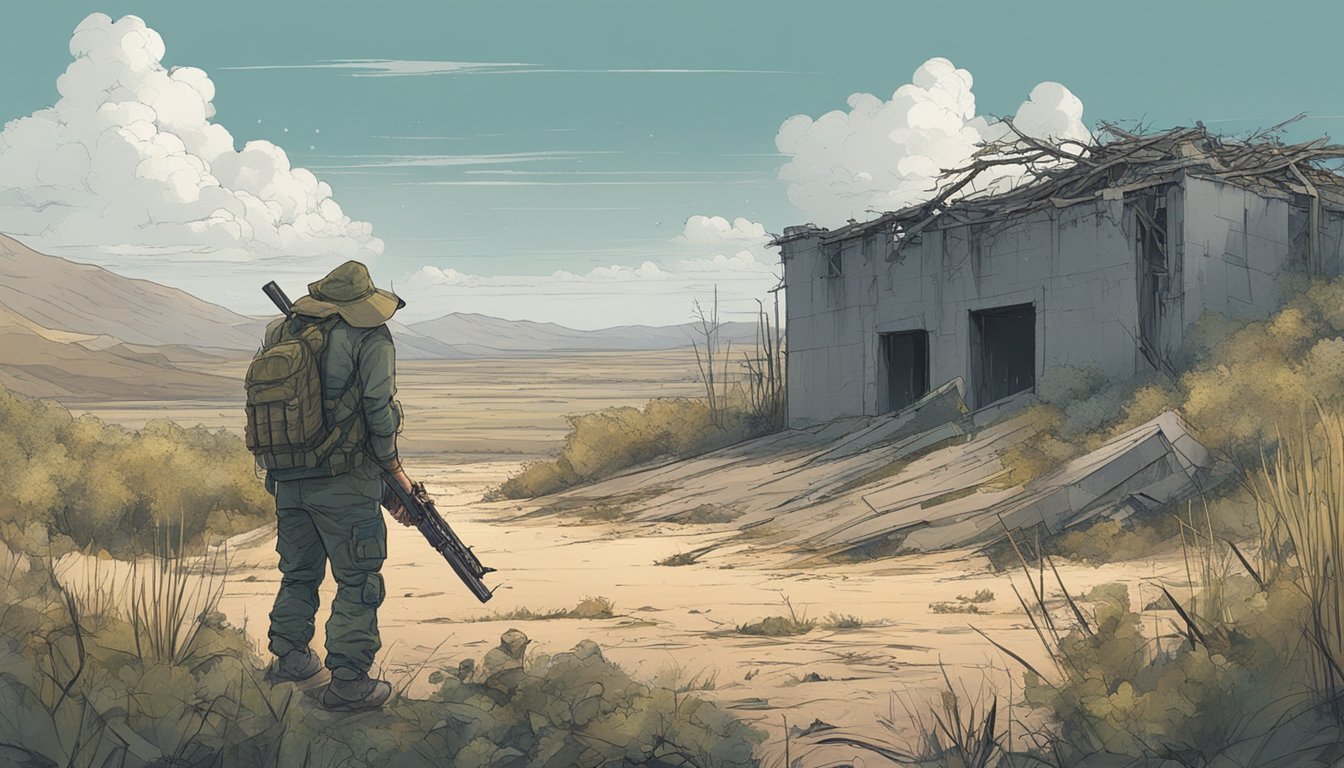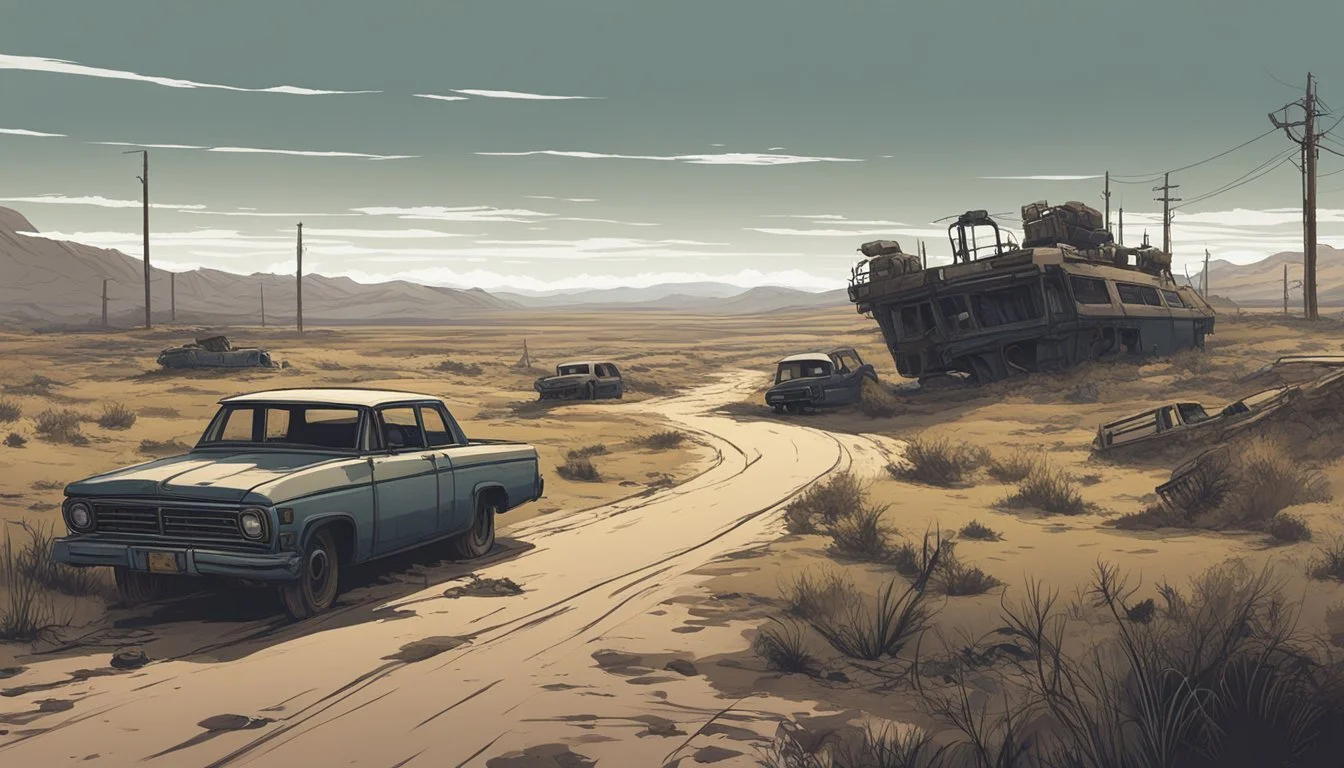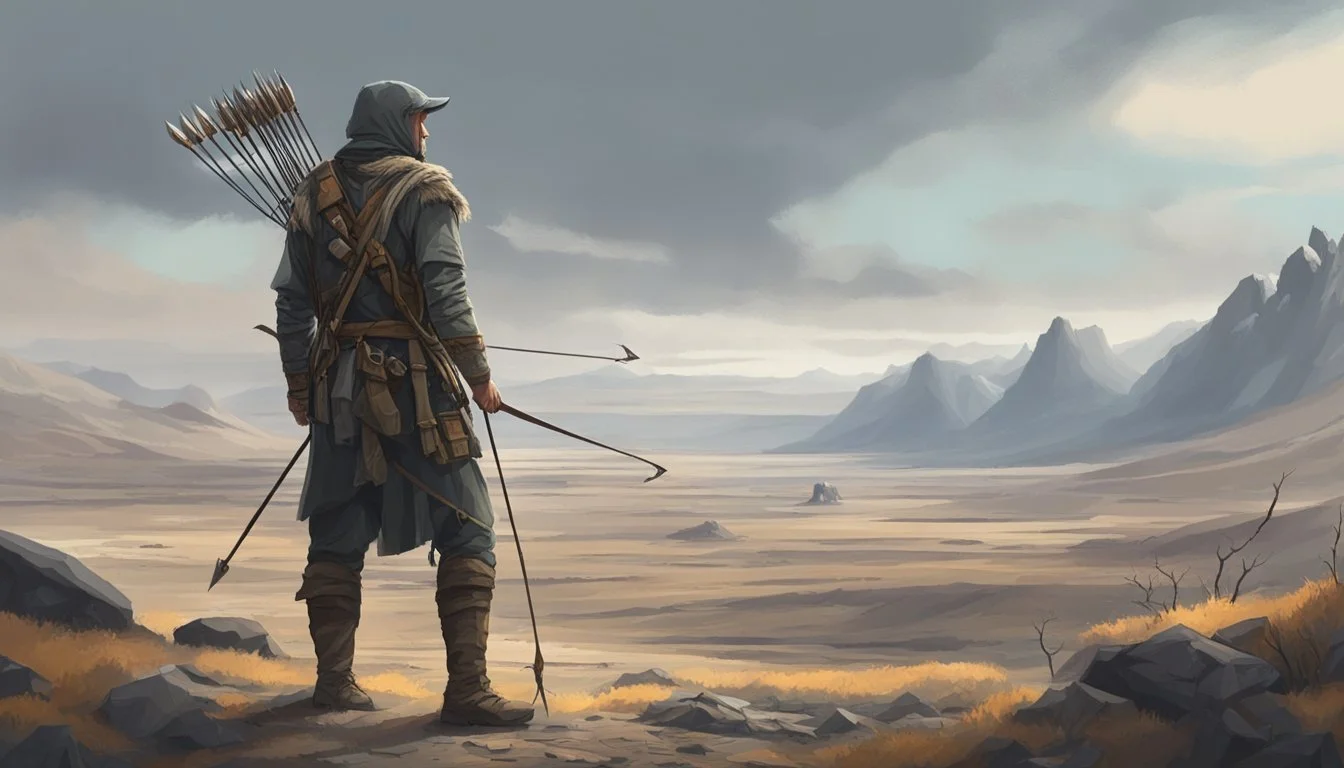5 Films That Explore the Role of Hunting in Post-Apocalyptic Scenarios
Survival Skills on the Silver Screen
Post-apocalyptic films have long captivated audiences with their depictions of survival in harsh, transformed worlds. These movies often explore how humanity adapts to new challenges and scarcity of resources after catastrophic events.
In many post-apocalyptic scenarios, hunting emerges as a crucial skill for survival, providing food and protection in lawless landscapes. This article examines five films that showcase the role of hunting in post-apocalyptic settings, highlighting how characters use this primal skill to navigate their new realities.
1) 'The Road' by John Hillcoat
'The Road' is a post-apocalyptic film directed by John Hillcoat, based on Cormac McCarthy's novel. The movie follows a father and son as they navigate a bleak, ash-covered world devoid of vegetation and most animal life.
Hunting plays a crucial role in the characters' survival. The pair scavenge for canned goods, but fresh food is scarce. They must remain vigilant for potential threats, including other desperate survivors who have resorted to cannibalism.
The film portrays hunting not just as a means of sustenance, but as a moral dilemma. The father teaches his son survival skills while trying to maintain their humanity. Their encounters with other survivors highlight the extreme measures people take when food is scarce.
'The Road' presents a stark view of a world where traditional hunting has been replaced by a desperate search for any remaining resources. It emphasizes the psychological toll of constant vigilance and the struggle to preserve one's values in the face of extreme scarcity.
More information about 'The Road' on IMDb
2) 'A Quiet Place' directed by John Krasinski
'A Quiet Place' presents a unique take on hunting in a post-apocalyptic world. Set in a world where blind alien creatures hunt by sound, the film explores the challenges of survival and procuring food silently.
The Abbott family must hunt and forage without making noise to avoid detection. This requires innovative techniques and extreme caution. They use sign language to communicate and walk on paths of sand to muffle their footsteps.
Fishing becomes a key method of obtaining protein, as it can be done relatively quietly. The family sets up silent traps and uses rivers to mask any small sounds they might make while hunting.
The film highlights how even basic survival tasks become incredibly dangerous in this setting. Every move must be calculated to avoid attracting the attention of the sound-sensitive predators.
'A Quiet Place' demonstrates how hunting and gathering skills become critical in a world where traditional methods are no longer viable. The constant threat forces the characters to adapt their techniques and remain hypervigilant at all times.
More information about 'A Quiet Place'
3) 'I Am Legend' starring Will Smith
'I Am Legend' depicts a post-apocalyptic New York City where Will Smith's character, Robert Neville, is seemingly the last human survivor. The film showcases hunting as a crucial survival skill in this desolate world.
Neville hunts deer that roam the abandoned streets of Manhattan. These scenes highlight how wildlife has reclaimed urban spaces in the absence of human activity.
The protagonist's hunting serves multiple purposes. It provides sustenance and maintains his survival skills. It also offers a semblance of normalcy in an otherwise chaotic environment.
Hunting in 'I Am Legend' extends beyond animals. Neville must also contend with infected humans who have become aggressive nocturnal predators. This adds a tense, survival horror element to the film's exploration of hunting.
The movie portrays hunting as both a necessity for survival and a dangerous activity in a world where humans are no longer the apex predators.
More information about 'I Am Legend'
4) 'The Book of Eli' with Denzel Washington
'The Book of Eli' presents a gritty post-apocalyptic world where resources are scarce and survival is paramount. Denzel Washington portrays Eli, a skilled hunter and warrior traversing the desolate landscape.
Hunting plays a crucial role in Eli's journey. He relies on his abilities to find food and defend himself against threats. The film showcases various hunting techniques adapted for a harsh environment devoid of modern conveniences.
Eli's proficiency with weapons, particularly his machete and bow, demonstrates the importance of traditional hunting skills in a world where firearms and ammunition are limited. These tools serve dual purposes for both hunting game and fending off hostile humans.
The movie depicts the scarcity of wildlife, highlighting the challenges of sustaining oneself through hunting alone. This scarcity drives conflict between survivors competing for limited resources.
'The Book of Eli' illustrates how hunting skills become essential not just for procuring food, but also for personal protection and navigating dangerous territories in a lawless world.
More information about 'The Book of Eli'
5) 'Mad Max: Fury Road' directed by George Miller
'Mad Max: Fury Road' presents a stark post-apocalyptic world where resources are scarce and survival is paramount. While hunting is not explicitly featured, the film explores themes of resource scarcity and the struggle for basic necessities.
The characters in the film are constantly searching for water, fuel, and other essential supplies. This mirrors the hunter-gatherer mentality often seen in post-apocalyptic scenarios.
The War Boys' pursuit of Max and Furiosa can be seen as a metaphorical hunt. They chase their prey across the wasteland, using specialized vehicles and weapons.
The film's intense action sequences and vehicle chases evoke the primal thrill of the hunt. The pursuit of resources and freedom becomes a life-or-death struggle in this harsh world.
'Mad Max: Fury Road' showcases how the hunt for survival can shape societies and individuals in a post-apocalyptic setting. It demonstrates the lengths people will go to secure their needs in a world of scarcity.
More information about 'Mad Max: Fury Road'
Thematic Exploration of Hunting in Post-Apocalyptic Narratives
Hunting emerges as a crucial element in post-apocalyptic films, reflecting societal shifts and ethical challenges. It serves as both a practical necessity and a moral battleground for characters navigating devastated worlds.
Survival as a Central Theme
In post-apocalyptic scenarios, hunting becomes a vital skill for survival. Characters must adapt to a world where supermarkets no longer exist, and processed food is scarce. Films often depict protagonists learning to track, trap, and kill animals for sustenance.
This newfound reliance on hunting highlights the fragility of modern food systems. It also showcases the resilience of human beings in dire circumstances.
Many films portray hunting as a bonding activity. Characters share knowledge and develop trust through these shared experiences. This aspect underscores the importance of community in rebuilding society.
Moral and Ethical Dilemmas
Hunting in post-apocalyptic narratives frequently presents moral quandaries. Characters grapple with the necessity of killing for survival versus their pre-apocalypse ethical standards.
Some films explore the psychological toll of hunting on individuals unaccustomed to such practices. This internal conflict often serves as a metaphor for broader societal changes.
The scarcity of resources in these scenarios can lead to conflicts over hunting grounds. This raises questions about territory, ownership, and the ethics of violence in a lawless world.
Films may also touch on the environmental impact of unchecked hunting in a world without regulations. This theme connects to real-world concerns about conservation and sustainable practices.
Hunting's Influence on Character Development
Hunting in post-apocalyptic films serves as a catalyst for profound character growth and shapes interpersonal dynamics. It tests survival skills, moral boundaries, and leadership abilities.
Transformative Journeys
Characters often undergo significant changes through their hunting experiences. The act of stalking prey and making difficult choices about killing for sustenance forces introspection and adaptation.
In "The Road," the father's protective instincts are heightened as he teaches his son to hunt and scavenge. This process strengthens their bond while exposing the boy to harsh realities.
"The Hunger Games" portrays Katniss Everdeen's evolution from reluctant hunter to skilled survivor. Her prowess with a bow, honed through years of hunting, becomes crucial to her survival in the arena.
Impact on Group Dynamics
Hunting skills often determine social hierarchies within survivor groups. Those who can successfully track and kill game gain respect and influence.
In "The Walking Dead," Daryl Dixon's hunting abilities make him an invaluable member of the group. His role as provider elevates his status and fosters trust among other survivors.
"Book of Eli" shows how hunting proficiency can lead to power struggles. Characters compete for resources, with skilled hunters holding significant sway over group decisions and resource allocation.
Hunting also tests group cohesion. Successful hunts boost morale, while failures can lead to tension and blame. These dynamics drive character development and plot progression in post-apocalyptic narratives.







